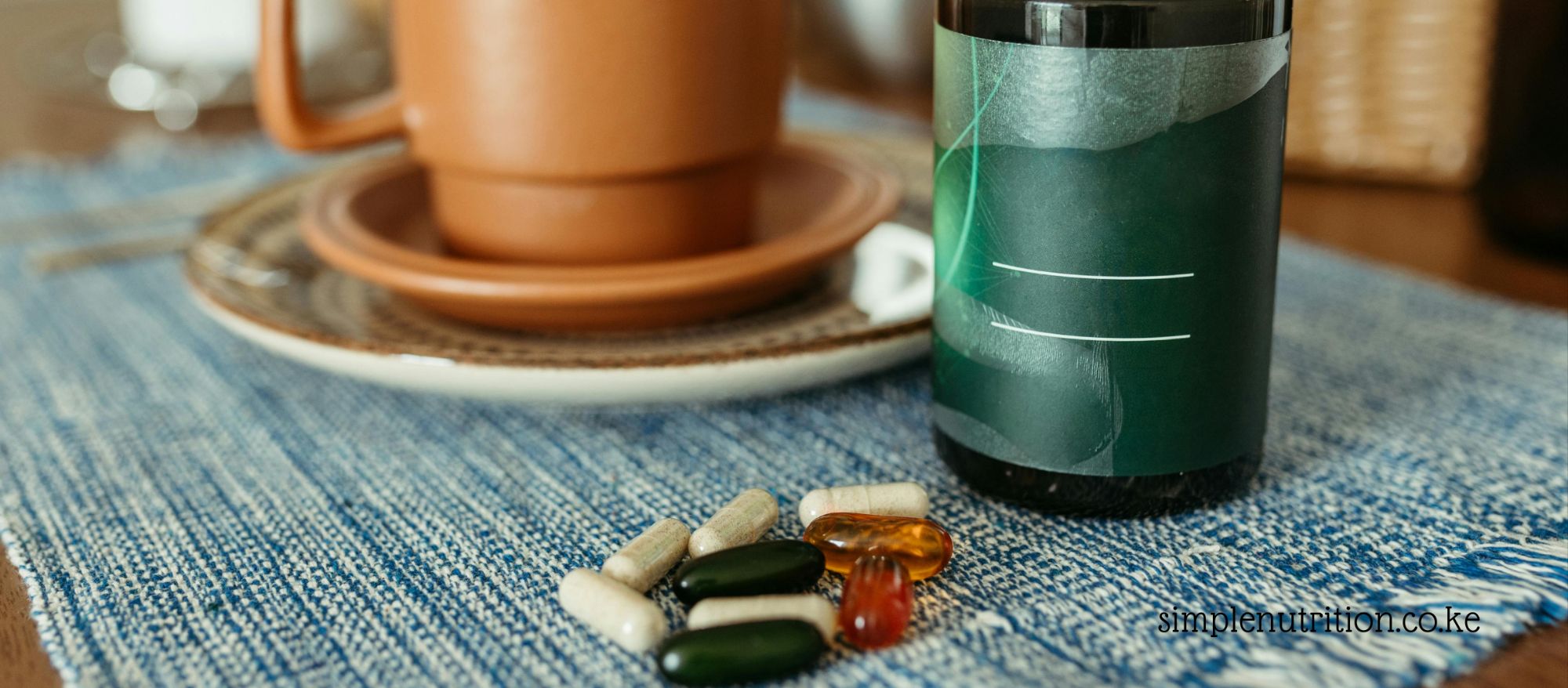Melena is a condition characterized by black, tarry stools. It occurs when there is bleeding in the upper gastrointestinal tract, typically in the stomach or small intestine. In most cases it can indicate serious underlying conditions such as peptic ulcers, gastritis, or gastrointestinal bleeding.
Management of melena can easily begin with:
- Assessment of the individual’s dietary habits, medical history, and current health status.
- Making Dietary changes like, consuming small, frequent meals and avoiding spicy, acidic, or irritating foods that could exacerbate gastrointestinal symptoms.
- Giving iron supplements or iron-rich foods to replenish iron stores and support red blood cell production. Since melena can lead to iron deficiency anaemia due to blood loss.
- Encouraging adequate hydration to prevent dehydration, especially if there is significant blood loss associated with melena.
Nutrition recommendations for peptic ulcer disease and gastritis.
For peptic ulcer disease aim to reduce symptoms, promote healing, and prevent complications. Here are some dietary guidelines:
- Avoid Trigger Foods: These may include spicy foods, acidic foods (like citrus fruits and tomatoes), caffeine, alcohol, and fatty or fried foods. It’s very important to identify individual triggers and limit or avoid them.
- Eat Small, Frequent Meals: Consuming smaller meals throughout the day instead of three large meals can help reduce stomach acid production and minimize irritation on the ulcers.
- Include High-Fiber Foods: Fiber-rich foods like fruits, vegetables, whole grains, and legumes can help maintain regular bowel movements and prevent constipation, which often may aggravate peptic ulcers.
- Choose Lean Protein Sources: Opt for lean protein sources such as poultry, fish, beans, and legumes. These are less likely to stimulate excess stomach acid production compared to high-fat meats.
- Limit NSAIDs and Smoking: Nonsteroidal anti-inflammatory drugs (NSAIDs) and smoking can exacerbate peptic ulcer symptoms and delay healing. Avoid or limit their use as much as possible.
You May Also need to;
- Consider Probiotics: Probiotic-rich foods like yoghurt containing live cultures may help promote a healthy balance of gut bacteria and support digestive health.
- Stay Hydrated: Drinking an adequate amount of water throughout the day can help maintain healthy digestion and prevent dehydration, especially if there is vomiting or diarrhea associated with peptic ulcers.
- Manage Stress: Stress doesn’t cause peptic ulcers, but it can worsen symptoms. Use stress-reduction techniques such as meditation, yoga, deep breathing exercises, or regular physical activity into your routine to help manage stress levels.
- Choose Easily Digestible Foods: Opt for bland, easy-to-digest foods such as plain rice, boiled or baked potatoes, lean proteins (such as chicken or fish), cooked vegetables, and whole grains. These foods are less likely to irritate the stomach and promote healing.
How to resolve melena.
Resolving melena involves addressing the underlying cause of gastrointestinal bleeding and providing appropriate medical treatment:
- Seek immediate medical attention if you experience melena, as it can indicate significant gastrointestinal bleeding.
- Once the cause of the gastrointestinal bleeding is identified, treatment will be directed towards addressing the underlying condition. This may involve medications to treat conditions such as peptic ulcers, gastritis, esophageal varices, or inflammatory bowel disease.
- If there is significant blood loss associated with melena, a blood transfusion may be necessary to replace lost blood and restore normal blood volume and oxygen-carrying capacity.
- Fluid Replacement: Intravenous fluids may be administered to maintain hydration and electrolyte balance, especially if there is ongoing bleeding or dehydration.
Prevention of Recurrence:
Once melena is resolved, it’s essential to address any underlying risk factors or conditions that may predispose to gastrointestinal bleeding.
This may involve lifestyle modifications, such as quitting smoking, avoiding excessive alcohol consumption, managing stress, and adhering to any prescribed medications or dietary recommendations.
Discover more from Simple Nutrition
Subscribe to get the latest posts sent to your email.






